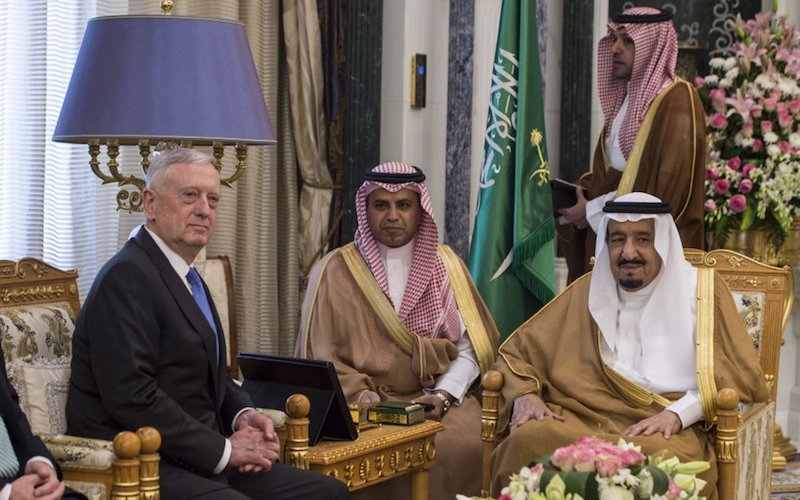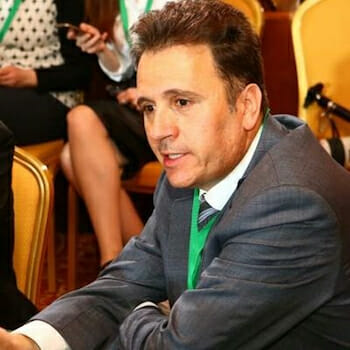
Trump and the Yemeni Quagmire
On April 18, US Secretary of Defense James Mattis arrived in Saudi Arabia to meet with King Salman and other high-ranking officials in the kingdom as part of a regional trip, which also included stops in Djibouti, Egypt, Israel, and Qatar. Mattis said that his “frank…candid…honest” talks with the Saudis “could not have gone better.” The Pentagon chief praised the kingdom, which he called one of Washington’s “best counterterrorism partners,” for “stepping up to its regional leadership role…to restore stability in this key region of the world.” The following day an official from the administration suggested that Donald Trump may soon make his first visit to Saudi Arabia as president of the United States. While speaking with Mohammad bin Salman, Saudi Arabia’s Deputy Crown Prince and Defense Minister, Mattis stated that it serves Washington’s “interest to see a strong Saudi Arabia.”
Building on Mohammed bin Salman’s visit to the White House in March, which Saudi officials claimed marked a “historic turning point” in US-Saudi relations, Mattis’ recent trip to Riyadh served to further strengthen Saudi confidence in the Trump administration’s approach to countering “Iran’s mischief.” After commending Saudi Arabia for supporting two close US allies—Egypt and Jordan—Mattis condemned Iran for backing Lebanese Hezbollah and Bashar al-Assad’s regime in Damascus, as well as deploying its own military forces to Syria. He asserted, “Everywhere you look, if there is trouble in the region, you find Iran.”
In continuity with the last administration, Mattis expressed the White House’s support for pursuing a diplomatic settlement to Yemen’s civil war, which involves bringing Iranian-backed Houthi rebels to the roundtable. The Trump administration, at least based on its words, seems to have joined the consensus that military action alone cannot bring peace to Yemen. However, in reassuring the Saudi leadership, Mattis stressed the administration’s view that Iran, rather than the collapse of the Yemeni nation-state or other socio-economic and sectarian problems, lies at the heart of Yemen’s crisis. He pointed to Iran’s delivery of weapons to Ansarullah (the dominant Houthi militia), saying that “Iran once again is no help.” Although the international community can “make progress” on Yemen, Mattis declared that it must first “overcome Iran’s efforts to destabilize yet another country and create another militia in their image of Lebanese Hezbollah.”

